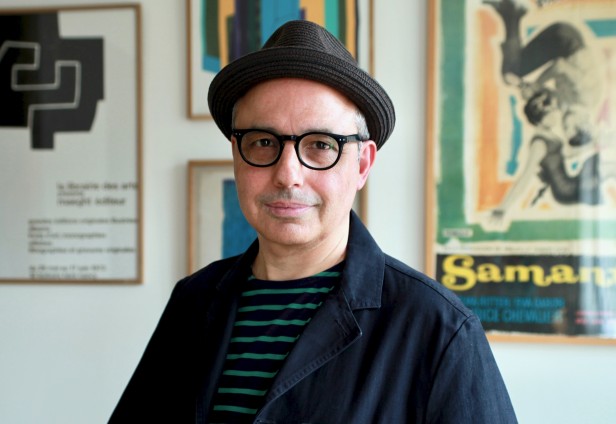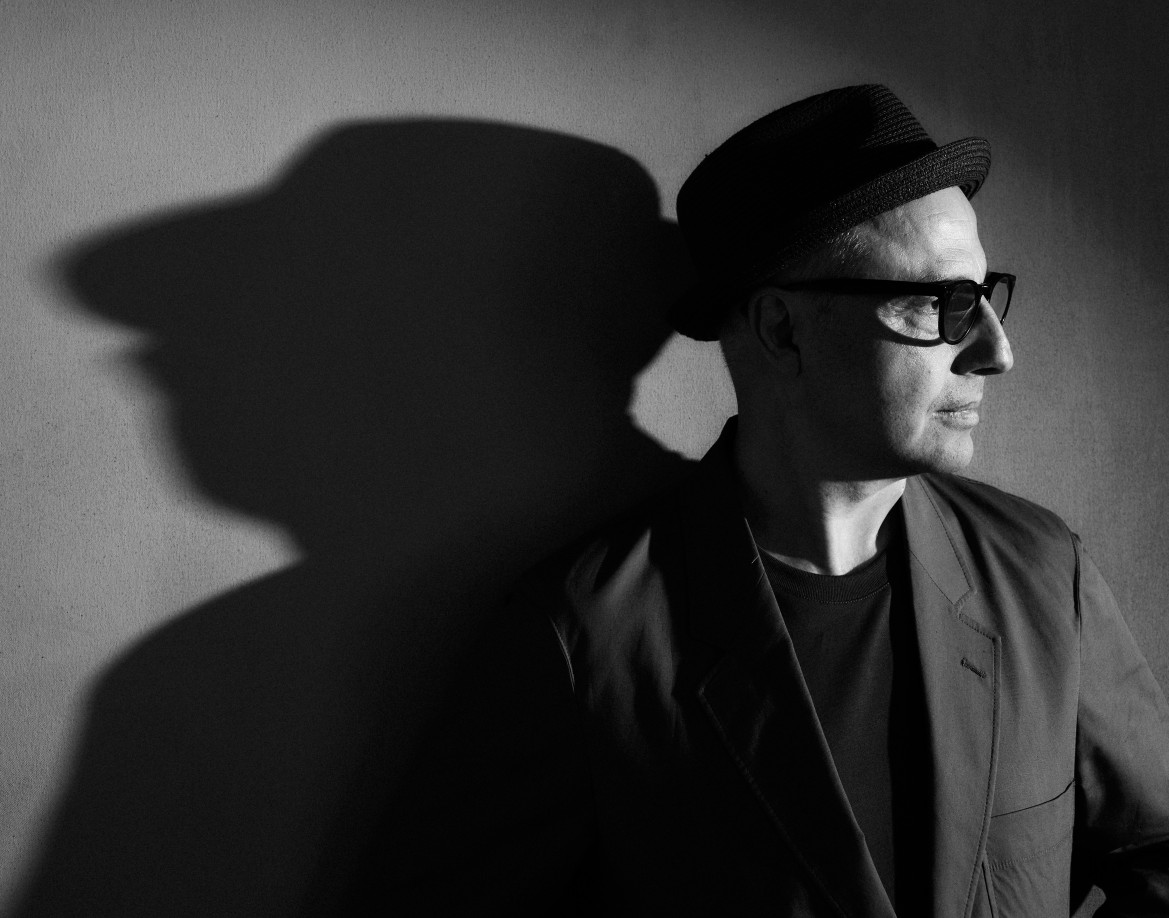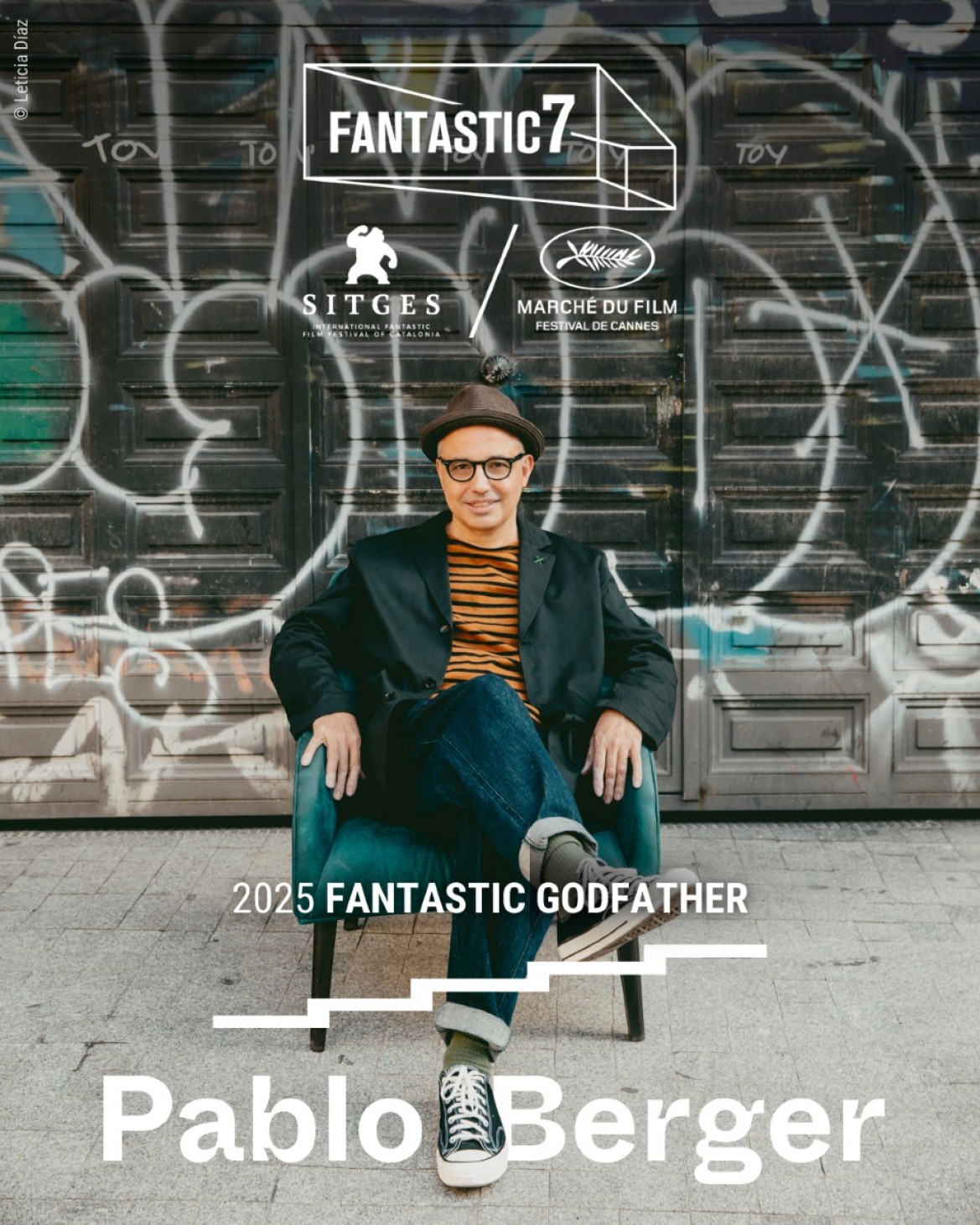
Pablo Berger Godfather of Fantastic 7 2025
16 Apr 2025
Reading 8 min.
Once again, the Fantastic 7 initiative — in which 7 major film festivals support 7 genre titles set to make waves in the near future — is gaining momentum by revealing its godfather. Once again, we have the honor of partnering with a great filmmaker. Pablo Berger, one of the most outstanding artists on both the national and international scenes, will join us in Cannes for the grand unveiling of the 7th edition of one of the projects that best embodies our ongoing mission to spread the “good word” of top-tier Fantastic cinema.
Let us now delve into the profile of a fascinating director who, as one might expect, overflows with a deep love for cinema in every single one of his appearances.
Berger, Spanish Fantastic Cinema’s All-Rounder Auteur
After premiering his first film, Torremolinos 73, in 2003, Pablo Berger made a name for himself with his more auteurist version of Princess Snow White, transformed into a bullfighter and assisted by a gang of dwarves. His Snow White (2012) became one of the films with the highest number of Goya awards in history and Pablo Berger, the most multifaceted auteur in Spanish film. His next project, Abracadabra, flirted with magic, possession and hypnosis from the perspective of black comedy. His passion for the fantastic genre and for stories featuring everyday heroes led him to produce the animated film Robot Dreams, winner of the award for best film in the Contrechamp section at Annecy 2023 and nominated for an Academy Award that same year.
The Boy Who Daydreamed About Jaws
I grew up in Bilbao, a very rainy city. Every day was like the Great Flood and the movie theater was the best place to take shelter. But for me, above all, the movie theater was the place where I could “daydream” and travel back in time to other places, to live other lives.
Back in the seventies, within a radius of a hundred yards, there were about ten different movie theaters near my house. One of them was located right next door. I could even hear the movies from my bedroom. Something that undoubtedly shaped my destiny.
I’m going to flash back here. Bilbao, 1975. It’s night-time. It’s raining, as always. I’m twelve years old and I’m with my family inside a huge, jam packed movie theater. The lights go out. People start coughing. The maroon velvet curtains covering the giant screen open. The projector turns on. The movie... JAWS. That was my first great cinematic ecstasy. I felt things while watching that movie that I’d never felt before. I was there with Richard Dreyfuss and co. to capture the great white shark. When it ended, the credits appeared in huge letters: DIRECTED by STEVEN SPIELBERG. That was the first time I became aware that behind every film there was a director. And I began to dream about the possibility of being one... A year ago in Los Angeles at the Academy Awards Nominees Luncheon I had the opportunity to meet Steven Spielberg and tell him about it. It was undoubtedly an unforgettable and very emotional moment. I still can’t believe it actually happened.
Monsters that Fuel Fantasy
My obsession with fantastic genre films also began when I was a little boy. My neighbor was a man who was an avid moviegoer and almost every weekend he would screen short versions of classic Universal horror films at his house. His audience was his daughter and myself. He would show us movies in Super 8 format including Dracula, The Mummy, Frankenstein, The Wolf Man... Films that were no longer than 25 minutes and for that reason were much more intense than the full length versions. After watching them I would have nightmares. But since I watched them so many times, I memorized them and the horror turned to pleasure.
Photo: Norman Wong - TIFF
The Holy Trinity of Horror and Fantasy
I’m totally old school. And aside from the Universal classics I mentioned earlier, for me the “holy trinity” of horror films are Rosemary’s Baby, The Exorcist and The Shining. Films by three outstanding directors: Polanski, Friedkin and Kubrick. These filmmakers took on this genre in order to reinvent and transgress it. They used cinematic language to the max: composition, editing, sound design, music... managing to create breathtaking sensory experiences.
And my particular “holy trinity” fantastic genre films consists of Sjöström’s The Phantom Carriage, Woody Allen’s The Purple Rose of Cairo and Miyazaki’s Spirited Away. Three absolute masterpieces. And which, like my “favorite horrors”, also begin as ordinary, local-color stories, and as their stories progress, become extraordinary. They are films that seek to surprise viewers’ empathy in order to surprise them. I totally identify with Mia Farrow’s character in The Purple Rose of Cairo, who goes to the movies to live the lives of others. I love the possibility of stepping into the screen and visiting “Wonderland”.
Working from Chaos
I always start a new project from chaos. For me, the keyboard is like a Ouija board and I let myself be carried away by my demons and my obsessions. I start to write down ideas haphazardly, as if I were possessed. I work from my subconscious, as if it were automatic writing. Initially, I don’t set any limits for myself. But once I’ve “vomited out” a bunch of scenes, I restore order to the chaos, to the ideas. And as if it were a puzzle, I piece together the story with the parts that interest me most, always using the structure of the classic tale as a model. I love that my films begin with “Once upon a time...” and that their main character is an ordinary person, an antihero, in an extraordinary situation. The biggest challenge is always to make an incredible story credible. That’s why I’m so interested in the fantastic genre.
I tend not to work on several ideas at the same time. I’m a single-tasker. After finishing the first draft of a script, I usually let it rest for a month. This allows me to come back to the script I set aside with a critical eye and fresh perspective.
From Writing to Image
I’m a scriptwriter-director. And in that order. Above all, I’m a storyteller. The origin of the project, the spark, is usually an image or a feeling. For example, for my debut film, Torremolinos 73, I imagined a film director, behind a viewfinder, shooting a pornographic sequence that his wife is participating in, but with another man. I thought of Jess Franco filming with his muse Lina Romay.
For Snow White the trigger was a black and white photo taken by Cristina García Rodero of a group of defiant dwarf bullfighters, staring straight into the camera. It was from her book España Oculta. And I, like Roger Corman, imagined the poster for the movie before shooting the movie, I completed the original photo in my head with an imaginary Snow White the bullfighter leading a gang of dwarves.
The inspiration for Abracadabra was an experience I had when a good friend of mine was hypnotized right before my eyes. And for Robot Dreams, being a film adaptation, I fell in love with the book it’s based on, especially with its ending.
The First Pitch
I remember it perfectly. It was in early 2000 with Spanish producer Juan Gordon from Morena Films. It was a pitch for my first film, Torremolinos 73. I remember getting thoroughly prepared for the meeting. Rehearsing it over and over again. The first thing I did was find out everything I could about Morena Films and Juan Gordon thanks to a special Variety issue on Spain. I discovered that one thing we had in common was that we had both pursued a Master’s Degree in the US. He at Columbia University and I at New York University. On the day of the pitch, we definitely hit it off as soon as we met. I summarized the storyline for him in a couple of lines, but without revealing the ending. Our meeting went really well. When the meeting ended, I felt sure that Juan was going to take the bait... Even though he really liked the project, he didn’t end up producing it, but I will always be grateful to him because he put me in touch with Tomás Cimadevilla, the producer who ended up making Torremolinos 73. So, at the end of the day, the pitch was a success. The lesson learned was that “the industry” is very small and that all the producers know each other and help each other out. Twenty-five years have gone by since then, and both Juan and I are still at it and continue to be friends.
Photo: Leticia Díaz - Fotogramas
Some Advice for Those Just Starting Out
We must keep in mind what the great screenwriter William Goldman said: “Nobody knows anything”. And since nobody knows anything, your compass is your instinct. Making films is too difficult, demanding and tiring to make films just for the sake of it. So fight to the death for that project that you’re obsessed with. Look for control and freedom when it comes to making your films. Never try to follow trends or fashions. There’s no point. And above all, approach each film as if it’s the last one you’re ever going to make.
The Ingredients for a Good Pitch
Prepare it well, rehearse it extensively so that when it’s time to deliver it, it comes across as natural and spontaneous. Americans, who know more about this than anyone, do it that way. During a good pitch you have to provide, through just a couple of brushstrokes, information about the main character, the conflict and the genre. And NEVER reveal the ending, so that the producer or the financier will want to read the entire script after your meeting.
The pitch is a tool of seduction. It’s a date that you want to be successful. You want to get the producer “into bed”. I recommend writing and rewriting until the pitch is “fat free”. Less is more. Actually, a pitch is kind of like a trailer. The potential producer has to be left wanting more.
Bringing along an attractively designed physical dossier also works. And above all, use humor and keep it light in your pitch, it helps to break the ice and get the “buyer” on your side. My favorite pitches appear in Robert Altman’s movie The Player.
The Future of Fantastic Genre, According to Berger
As a true fantastic genre lover, I am always on the lookout for new talent. Over the last decade, new directors have come along with relatively modest, albeit very surprising independent films, but which have achieved global success, as is the case with David Robert Mitchell’s It Follows (2014), Jordan Peele’s Get Out (2017), Ari Aster’s Hereditary (2018), Julia Ducournau’s Titane (2021) and, more recently, Coralie Fargeat’s The Substance (2024) or Gints Zilbalodis’ Flow (2024).
I’m a romantic, I think it’s a wonderful time to be a cinematic terrorist and make unique and groundbreaking films. Cinema is a young art form and we are a long way from reaching the ceiling of cinematic expression. Even so, regardless of the tools we have at our disposal -AI is undoubtedly one of them- I think the most important thing is to have a great and surprising story to tell. As always. I’m sure that among the projects presented in this year’s edition of FANTASTIC 7, we will have several of what will be the most outstanding films of the coming years.

